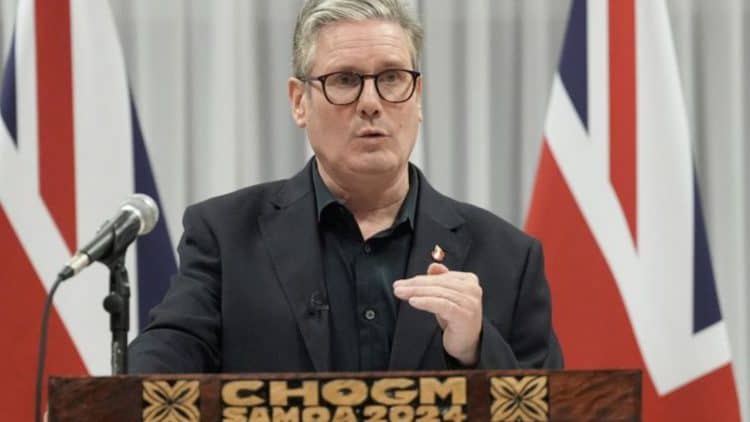At a two-day summit in Samoa, Commonwealth leaders reached a consensus that it is time to discuss reparations for the transatlantic slave trade. A joint statement, signed by leaders of 56 member states, including UK Prime Minister Sir Keir Starmer, calls for “meaningful, truthful and respectful conversation” on reparatory justice.
Despite this call, Sir Keir clarified that financial reparations were not part of the discussions. “Our position is very clear: we will not be paying reparations,” he said. The UK government has faced increasing pressure from Commonwealth nations to apologise and consider reparations for its historical role in the slave trade.
Ahead of the summit, Downing Street aimed to keep reparations off the agenda, highlighting climate resilience as the main theme. However, with the growing calls, the leaders’ statement reflects the need to address this controversial issue. Sir Keir described the summit as “positive,” downplaying the reparations discussion, which he said was just “one paragraph in 20.”
Call for Reparations as Momentum Grows
Although the final communique only briefly mentioned reparations, the topic took centre stage in informal discussions. The leaders’ conclave—an advisor-free meeting of prime ministers and presidents—reportedly extended to six hours. While Sir Keir stated that reparations were not the reason for the lengthy meeting, other sources suggest that this issue, along with climate change and trade, was widely discussed.
Downing Street reinforced the UK’s unchanged stance. “We’ve been clear on our position, and it’s not changing,” stated a government source. Still, some diplomats believe the reparations conversation is far from over and expect it will feature prominently in the next Commonwealth summit.
Opening the Door for Future Talks
Sir Keir hinted that the UK might consider further dialogue at the upcoming UK-Caribbean Forum in London next March. Bahamian Foreign Minister Frederick Mitchell voiced hopes for a “comprehensive report” on reparations at that forum. He suggested the UK could eventually provide financial compensation to Caribbean nations.
While a formal apology or funding are two potential forms of reparatory justice, other options, like educational initiatives and health support, may also be considered. Last year, a UN judge suggested the UK could owe more than £18 trillion in reparations to 14 Caribbean nations.
Despite the divisive nature of reparations, the leaders agreed to keep the discussion open. This allows advocates to push forward, while the UK maintains its current position and continues to focus on broader Commonwealth issues, such as climate change and economic resilience.
You may also like: Reform UK’s “formidable” campaign falls flat with no seats gained







